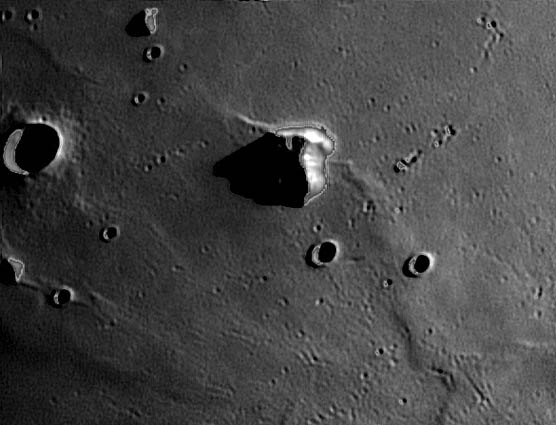Difference between revisions of "February 10, 2005"
| (11 intermediate revisions by the same user not shown) | |||
| Line 1: | Line 1: | ||
__NOTOC__ | __NOTOC__ | ||
=Peaky Piton= | =Peaky Piton= | ||
| + | <!-- Start of content --> | ||
<table width="85%" border="0" align="center" cellpadding="6" cellspacing="2"> | <table width="85%" border="0" align="center" cellpadding="6" cellspacing="2"> | ||
<tr> | <tr> | ||
| − | |||
</tr> | </tr> | ||
</table> | </table> | ||
<table width="85%" border="0" align="center" cellpadding="6" cellspacing="2"> | <table width="85%" border="0" align="center" cellpadding="6" cellspacing="2"> | ||
<tr><td colspan="2" valign="top"><div align="center"> | <tr><td colspan="2" valign="top"><div align="center"> | ||
| − | + | [[File:LPOD-2005-02-10.jpeg|LPOD-2005-02-10.jpeg]] | |
</div></td> | </div></td> | ||
</tr> | </tr> | ||
</table> | </table> | ||
<table width="80%" border="0" align="center" cellpadding="8"> | <table width="80%" border="0" align="center" cellpadding="8"> | ||
| − | <tr><td><div align="center" class="main_sm">Image Credit: [mailto:mwirths@superaje.com Mike Wirths]</p> | + | <tr><td><div align="center" class="main_sm"><p>Image Credit: [mailto:mwirths@superaje.com Mike Wirths]</p> |
</div></td> | </div></td> | ||
</tr> | </tr> | ||
| Line 21: | Line 21: | ||
<p align="center"><b>Peaky Piton</b></p> | <p align="center"><b>Peaky Piton</b></p> | ||
<p align="left">In some of the speculative paintings of the Moon from | <p align="left">In some of the speculative paintings of the Moon from | ||
| − | the 1950s and earlier, Mount Piton, [ | + | the 1950s and earlier, Mount Piton, [[September_11,_2004|Pico]] |
and similar isolated peaks were often depicted as | and similar isolated peaks were often depicted as | ||
soaring spires with long shadows. It was the low-angle | soaring spires with long shadows. It was the low-angle | ||
| Line 27: | Line 27: | ||
peak only 2.3 km high with a base about 25 km across. | peak only 2.3 km high with a base about 25 km across. | ||
As Mike’s image shows, Piton has variations in | As Mike’s image shows, Piton has variations in | ||
| − | brightness similar to [ | + | brightness similar to [[December_21,_2004|bands]] on |
| − | |||
the inner walls of impact craters. The dark hues are | the inner walls of impact craters. The dark hues are | ||
probably the space-weathered tone of the mountain, and | probably the space-weathered tone of the mountain, and | ||
| Line 37: | Line 36: | ||
pairs or clusters suggests that they may be secondary | pairs or clusters suggests that they may be secondary | ||
craters.</p> | craters.</p> | ||
| − | <blockquote><p align="right">— [mailto:tychocrater@yahoo.com Chuck Wood]</blockquote> | + | <blockquote> |
| − | <p align="left" | + | <p align="right">— [mailto:tychocrater@yahoo.com Chuck Wood]</p></blockquote> |
| + | <p align="left"><b>Technical Details:</b><br> | ||
Jan 18, 2005. Starmaster 18" + Atik B&W webcam + 5X | Jan 18, 2005. Starmaster 18" + Atik B&W webcam + 5X | ||
barlow, + IR passband filter + Registax 2 + Images | barlow, + IR passband filter + Registax 2 + Images | ||
| Line 47: | Line 47: | ||
<p><b>Related Links:</b><br> | <p><b>Related Links:</b><br> | ||
[http://www.uky.edu/~holler/msc/data_input/heightof.htm Calculating the Height of Piton] | [http://www.uky.edu/~holler/msc/data_input/heightof.htm Calculating the Height of Piton] | ||
| − | <p | + | </p> |
| + | <p><b>Yesterday's LPOD:</b> [[February 9, 2005|Postcard from the Moon]] </p> | ||
| + | <p><b>Tomorrow's LPOD:</b> [[February 11, 2005|Seeing Double at Capuanus]] </p> | ||
</tr> | </tr> | ||
</table> | </table> | ||
| Line 58: | Line 60: | ||
<p align="center" class="main_titles"><b>Author & Editor:</b><br> | <p align="center" class="main_titles"><b>Author & Editor:</b><br> | ||
[mailto:tychocrater@yahoo.com Charles A. Wood]</p> | [mailto:tychocrater@yahoo.com Charles A. Wood]</p> | ||
| − | < | + | <!-- Cleanup of credits --> |
| − | + | <!-- Cleanup of credits --> | |
| − | < | + | <!-- Cleanup of credits --> |
| − | + | <!-- Cleanup of credits --> | |
| − | + | <!-- Cleanup of credits --> | |
| − | < | + | <!-- Cleanup of credits --> |
| − | < | + | <!-- Cleanup of credits --> |
| − | + | <!-- Cleanup of credits --> | |
| − | < | + | <!-- Cleanup of credits --> |
| − | + | <!-- Cleanup of credits --> | |
</td></tr> | </td></tr> | ||
</table> | </table> | ||
<p> </p> | <p> </p> | ||
| − | ---- | + | <!-- End of content --> |
| − | + | {{wiki/ArticleFooter}} | |
| − | |||
Latest revision as of 15:10, 15 March 2015
Peaky Piton
Image Credit: Mike Wirths |
|
Peaky Piton In some of the speculative paintings of the Moon from the 1950s and earlier, Mount Piton, Pico and similar isolated peaks were often depicted as soaring spires with long shadows. It was the low-angle shadows that fooled them, for Piton is a stubby little peak only 2.3 km high with a base about 25 km across. As Mike’s image shows, Piton has variations in brightness similar to bands on the inner walls of impact craters. The dark hues are probably the space-weathered tone of the mountain, and the bright bands are fresh material exposed by small landslides. The surrounding surface of Mare Imbrium is pockmarked with a number of craters. Some are random impacts, but the fact that many are in short lines, pairs or clusters suggests that they may be secondary craters. Technical Details: Related Links: Yesterday's LPOD: Postcard from the Moon Tomorrow's LPOD: Seeing Double at Capuanus |
|
Author & Editor: |
COMMENTS?
Register, Log in, and join in the comments.




